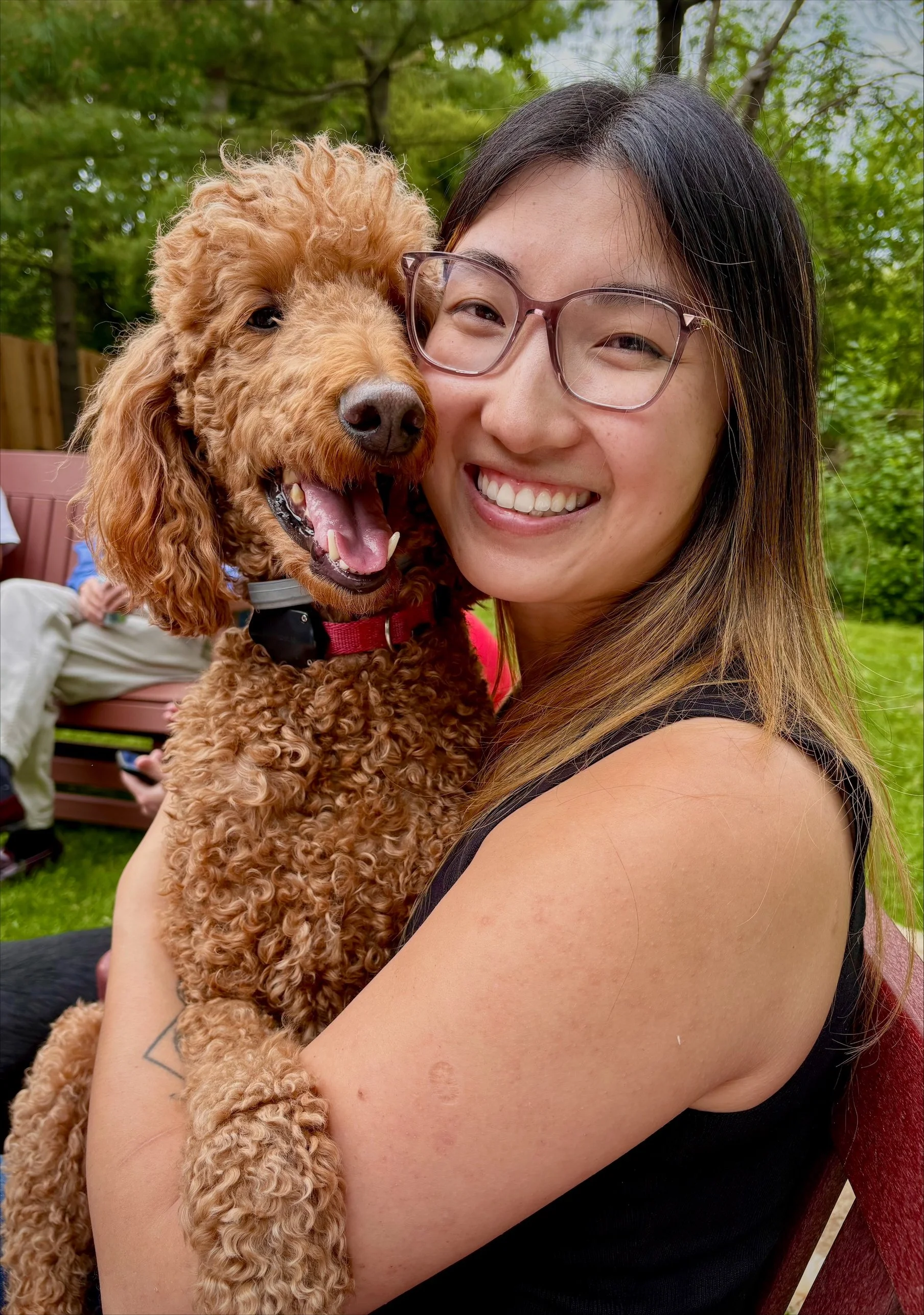Healing After Pet Loss: Understanding Grief and Finding Support
The bond we share with our animals runs deep — often becoming one of the most meaningful relationships in our lives. Pets bring unconditional love, daily comfort, and a sense of connection that we carry into every corner of our homes and hearts. When that bond is broken through illness, aging, or loss, it can leave a profound emptiness that words rarely capture.
At River Pines Counseling, we understand that losing a pet is not “just losing an animal.” It’s losing a companion, a routine, and a piece of your emotional world. Grieving a pet can feel isolating, especially when others don’t fully understand the depth of your pain. But your grief is real, and it deserves compassion, care, and space to heal.
Why Pet Loss Hurts So Deeply
Grief after losing a pet is a natural, valid response to losing someone who brought you daily companionship and emotional support. Research shows that up to 85% of pet owners experience significant grief symptoms following the death of a pet, including sadness, guilt, and difficulty concentrating (Quackenbush & Glickman, Anthrozoös). Yet, because pet loss is often minimized or misunderstood, people may feel pressured to “move on” quickly.
This type of unacknowledged pain is known as disenfranchised grief — a grief that society doesn’t always recognize. It can make healing more difficult because the mourner doesn’t feel permitted to fully express or honor their emotions.
Acknowledging that this grief is valid and significant is the first step toward healing.
Understanding the Journey of Grief
Pet loss grief often mirrors other forms of bereavement. You may experience:
Shock and denial — struggling to accept what’s happened.
Anger or guilt — questioning decisions about treatment, timing, or euthanasia.
Sadness or withdrawal — missing your pet’s presence in everyday life.
Acceptance and integration — finding new ways to honor your pet’s memory.
Grief is not linear; it ebbs and flows like waves. Some days may bring peace, while others stir deep sadness. Healing doesn’t mean forgetting — it means learning how to carry the love forward in a new way.
How Therapy Can Help You Heal
Therapy provides a compassionate, nonjudgmental space to process your emotions and honor your bond. Working with a therapist can help you:
Understand how pet loss grief is often minimized by others and how that impacts your healing.
Normalize your emotions through psychoeducation and validation.
Incorporate mourning rituals such as journaling, art, or memorial ceremonies.
Navigate anticipatory grief when facing a pet’s aging, illness, or end-of-life decisions.
Process complex emotions like guilt, anger, or helplessness after euthanasia or rehoming.
Through supportive counseling, you can rediscover balance and meaning while keeping your connection to your pet alive in a healthy, healing way.
Meet Clare Beardsley, LPCC – Supporting Clients Through Loss and Life Change
“My goal is to provide a safe, compassionate space for people who are experiencing profound change — whether it’s loss, trauma, or the quiet ache of transition.”
— Clare Beardsley, LPCC
My name is Clare Beardsley, and I’m a Licensed Professional Clinical Counselor at River Pines Counseling. My clinical work focuses on trauma, loss, and difficult life transitions. I’ve supported many clients as they navigate some of life’s hardest moments — from bereavement to the emotional toll of saying goodbye to a beloved pet.
In addition to this foundation, I’m currently completing training to become a Pet Loss Grief Counseling Trained Professional. This specialization builds on my existing expertise and allows me to offer focused support to pet owners facing the unique pain of losing a companion animal.
I help clients:
Understand and validate the emotional depth of pet loss.
Normalize their grief experience through psychoeducation and gentle guidance.
Explore rituals of remembrance that foster healing and connection.
Navigate anticipatory grief related to chronic illness, aging, or quality-of-life decisions.
Work through complex emotions surrounding euthanasia, surgery, or rehoming.
Every story is unique, and every goodbye carries its own complexity. My goal is to walk alongside you — offering warmth, understanding, and tools to support your healing.
You Don’t Have to Grieve Alone
At River Pines Counseling, we believe that every form of loss deserves care and acknowledgment. Whether your grief feels overwhelming or quietly persistent, we’re here to help you make sense of your emotions and find gentle ways to move forward.
If you’re struggling after the loss of a pet, you don’t have to face it alone.
Reach out today to connect with Clare Beardsley, LPCC, or one of our compassionate providers who specialize in grief and loss.
River Pines Counseling provides in-person sessions at our Stillwater, MN office and telehealth appointments across Wisconsin and Minnesota.



